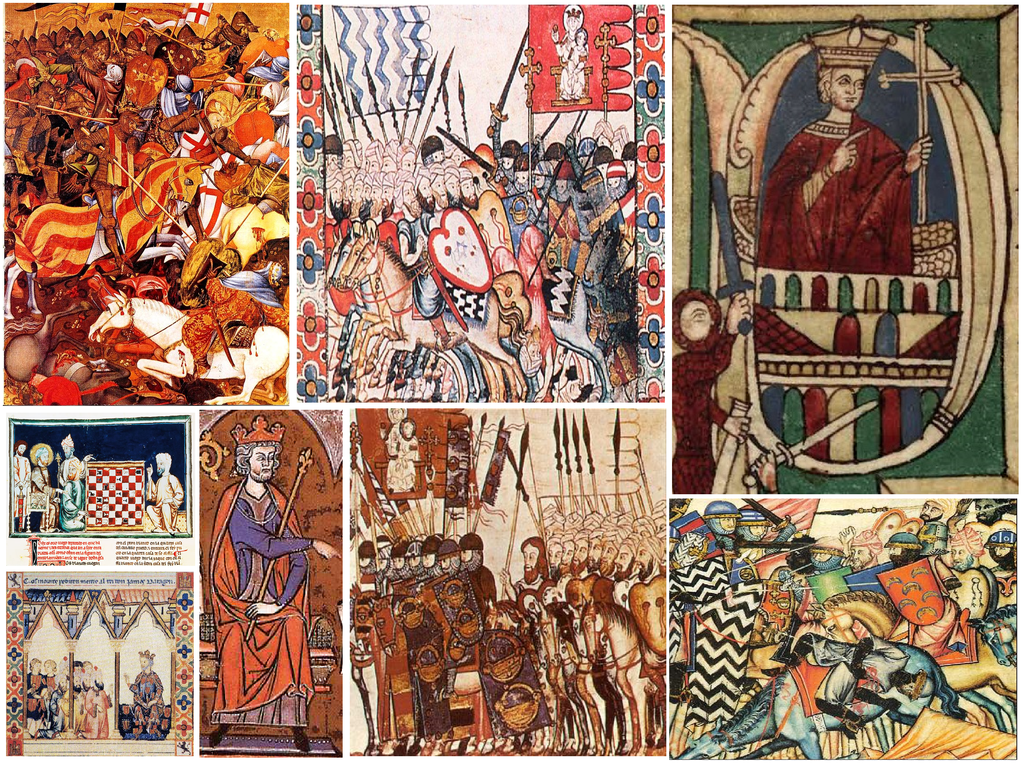By Ayesha Aijaz
Fall of Granada and the Plight of Morisco (Part 1) can be found here
Our enemy has gained power over us because of our sinfulness; the lions and leopards of the enemy have wreaked havoc upon us.
Yes, they have pillaged our homeland, our lives and our possessions; its abundance has been allowed [them]s legitimate spoils;
They have seized [ravished] her [Andalus] without providing a bride-price; no spears have been watered for them, nor have her menfolk fought them for her;
The Franks have howled down at us from every hilltop and their vows to Cross have been completely achieved.
A lamenting poem by an Andalusian poet from Ronda, Abu al-Baqa’ al-Rundi.
In an under-populated land due to its geographic limitations, Muslims were a source of revenue for Spain. They were hardworking and able craftsmen and losing the entire Muslim population by a radical and absurd move would have resulted in loss of actual manpower to run the country at the grass root level. Also with years of war, Ferdinand wanted to stabilise Christian Spain with a policy of moderation. Thus, the first archbishop of Granada, Hernando de Talavera, was chosen for his saintly reputation and policy of moderation. Although conversion to Christianity was a goal, but persuasive methods, and not coercion, was his policy. He tried to learn Arabic and insisted the priests to do the same in order to get close to the Moors for their assimilation, as Christianising of the Moors meant civilising them. Pedro de Alcalá who composed his Art for Learning Rapidly the Arabic Language, states in his prologue that its purpose was to ‘bring the recent converts out of darkness and many errors induced by that evil, vile, and accursed Muhammad.’[12]
Talavera’s gradualist approach was too slow. Hence, Francisco Ximenez de Cisneros, the archbishop of Toledo was sent to assist him. His strategy, initially, was bribing the Muslim nobles, and later, conversion by harassment. Failure to convert would mean death. Arabic religious books were burnt and main mosque of Albaicín was converted to a church. Cisneros’ radical methods led to the first revolt of Alpujarras (1499-1500). The revolt finally made the terms of Capitulations null and void. The impressive clauses of the treaty were practised only initially, as a cautious political move, not to grant full religious freedom but to win Muslims towards integration into the Catholic faith by conversion. So, were they put on paper with a clear intention of giving freedom? Or were they ever truly practised to the core as ‘live and let live’; the evidence is hard to find with the attitude of the clergy, and the complacency of the monarchs towards it.
The year 1501 marks the beginning of Royal ordinances calling Muslims to disarm[13], to choose between exile and baptism, and abandonment of Moorish dress and customs. 5000 Arabic religious books were put to flames in a public bonfire with thousands of Qurans and texts of ‘Muhammadan impiety’. Moors transformed from Mudejars to Moriscos, a lowly class of converted Christians separate from the Old Christians who enjoyed purity of blood (limpieza de sangre).[14] It was easier for the people, who did not have the means to migrate, to convert to Christianity and keep practising Islam secretly. They were subject to Inquisition on the slightest of suspicion of apostasy or secretly practising their own faith, just like with the Jews earlier, as described by Professor B. Netanyahu quoting an eyewitness account of the time:
‘Those of them who refused to accept baptism were immediately slain, and their corpses, stretched in the streets and the squares, offered a horrendous spectacle.’[15]
This was re-enacted upon the Muslims just a few years after the fall of Granada. As the agreement put in clear words that no Moor would be harmed ‘without a due legal process or without cause’, the due legal process was now the Inquisition, where people would be brought to ‘swift justice’ by torture until they confessed and when they confessed, they would either be baptised or killed any way. ‘The cause’ why they could be harmed or brought to Inquisition was justified by the crime i.e. heresy and apostasy.
Heresy could mean anything i.e.; taking bath on a Friday, wearing clean clothes, eating couscous, dancing on a Berber music, fasting in Ramadhan, retaining Arabic names, working on Christian holidays, refusing to eat pork or drink wine etc. The treaty did have loopholes, which were exploited by the clergy. No Christians who had converted to Islam before the capitulation, were to be abused but Christian women, who had married Muslim men, were subject to be questioned. Prior to the surrender there were incidents, where the converts were tied to stakes and killed with cane spears.
Granadan converts were protected, in theory, against such treatment, but Cisneros took advantage of the loophole and started summoning the convert wives of Moors to which people revolted and one of Cisneros cardinals was killed. While Ferdinand was furious of the policies of the archbishop, Cisneros was unrepentant, convincing him that pardoning the rebels against the offer of conversion to Christianity would be a promising political move, to which Ferdinand agreed[16]. It hints that while Ferdinand disliked Cisneros’ radical approach, he never disagreed to conversion of the Moors to Christianity and the terms of the treaty were a pragmatic and political way of gradually Christianising the population, united under the Cross.
Moriscos were considered a hindrance to the unity of Christian Spain due to internal reasons, but they were also considered a threat because of their links externally with the global family of Muslims. They were a force that could potentially get help from North Africans, Egyptians, French, Turks, pirates of the Mediterranean, or other Christian heretics. Discovery of America and Spanish expansion made Spain dangerous to England, France and the Ottomans. Out of these, Turks were the biggest threat to Spain, with a mighty force that had conquered Constantinople and were making way to North Africa. The rise of Protestantism also had its repercussions for the Moriscos who, the Catholic Clergy thought, could conspire with them to weaken Spanish power. Thus, the attitude toward the Moriscos was hardened due to the multiple potential threats to the Peninsula.
The irony was that, while in Spain, they were considered as bad and unreliable Christians, they were bad Muslims who had given up their faith and accepted that legitimacy of Trinity and the Church, for their co-religionists outside the Peninsula. Moriscos appealed to both Turks and North Africans for intervention. A letter written in the form of Qaseeda (praise) to Sultan Bayazid[17] in 1501, explained in an unusual way, as to why Moors of Spain were made to convert to Christianity against their wills, and under the fear of death. It was a composition of praise for the Sultan, prayer for his success, plight of the fellow brethren, and plea to him to intervene in the dire situation where young girls were raped by priests, and ‘slaves’ in Andalus had been ‘smitten by misfortune’, forced to eat pork, oppressed in a shameful way and struck by an ‘enormous calamity’. He also protested, subtly, of a total lack of help from those whom Muslims looked to, as their ‘brethren’. He conveyed that all promises of the kings were revoked and books of religion were burnt and to be mixed with dung and filth. The Muslims were asked to curse the Prophet Muhammad and faced beatings, fines and humiliation if invoked or chanted his name. The dead would not be buried (in Islamic way) but left ‘on a dung heap like a dead donkey’ or ‘burnt like charcoal’.
This article is continued in Fall of Granada and the Plight of Morisco (Part 3)
The views expressed herein may not necessarily reflect the views of JI FAD and/or any of its affiliates






